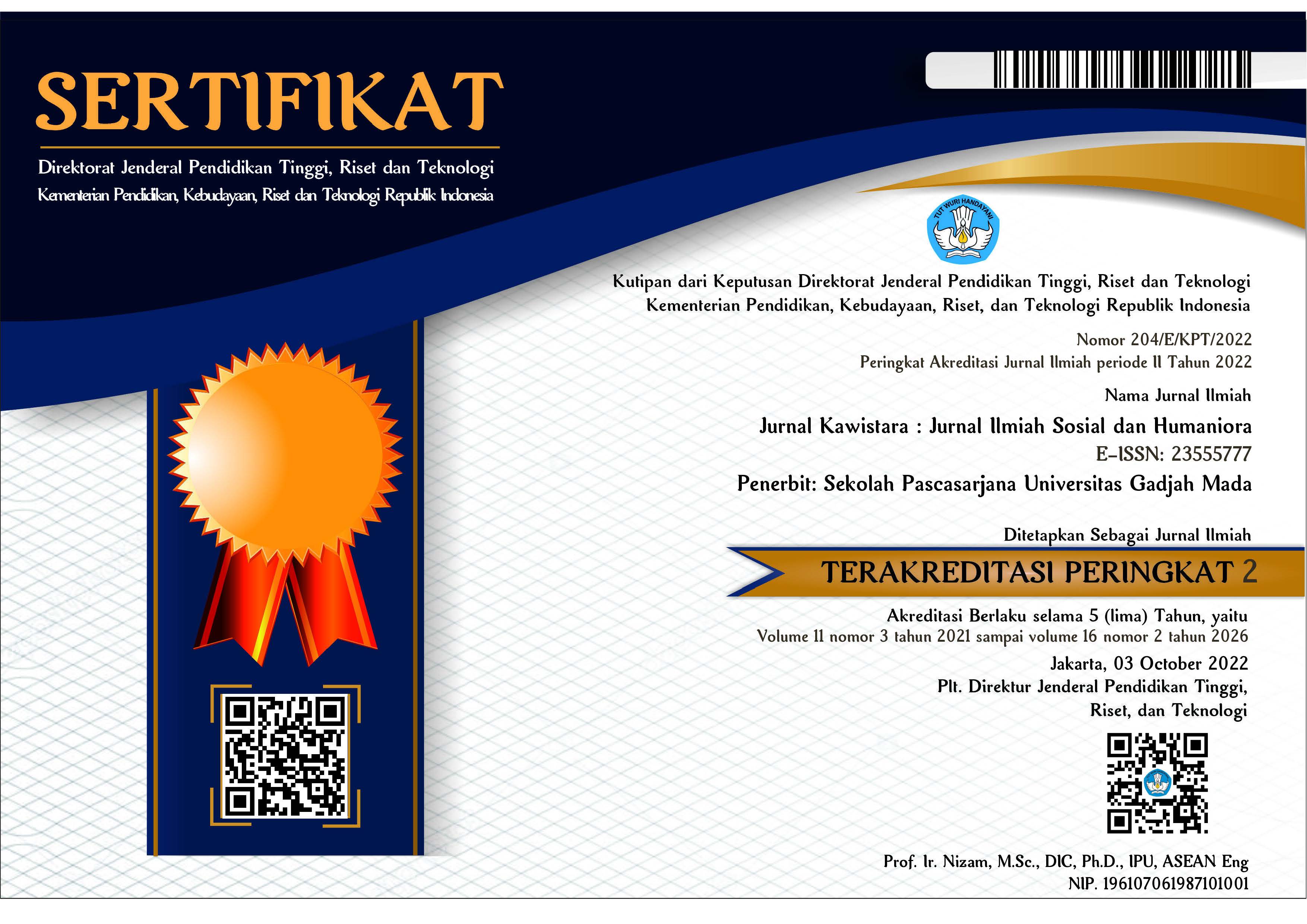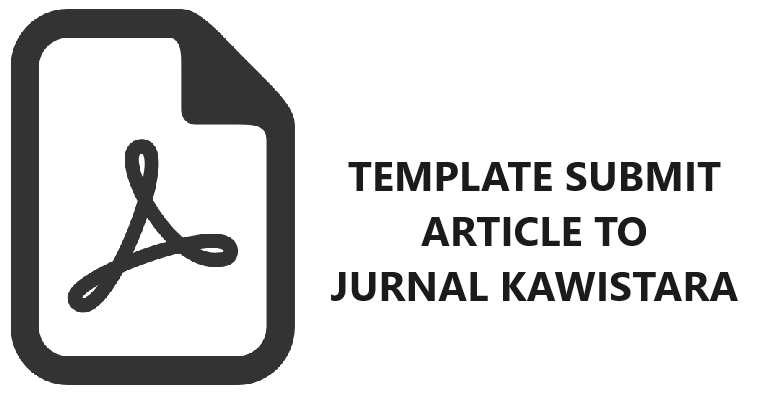Consensus on Land Use Change in Bangka Tengah Regency
Anik Endah Puspitasari(1*), Retno W. D. Pramono(2)
(1) Gadjah Mada University
(2) Gadjah Mada University
(*) Corresponding Author
Abstract
Differences in perception or interest in land use can potentially lead to conflict. One of the efforts to minimize the possibility of conflicts in land use is to build consensus among stakeholders. This process is not only able to minimize conflict but is expected to be the most appropriate solution to facilitate the implementation of the plan. This paper will present an example of the dynamics of consensus building in the process of land conversion in Bangka Tengah Regency which had previously been designated as a mining zone and then planned to be converted into a Tourism Special Economic Zone (Tourism SEZ). In this proposal, an agreement has been successfully built between the first permit holder and the SEZ proposer, however, the plan to establish SEZ has not materialized. What exactly is a factor in this so that the agreement that has taken place has not become the capital for the successful implementation of the plan? This research aims to explain the constraints on not implementing the plan after an agreement has been reach. The research was conducted with a stakeholder mapping analysis framework. Data were obtained by conducting interviews, observations, and collecting documents related to the SEZ proposal. The selection of informants was carried out purposively to obtain detailed information so that it could be used to answer research questions. The results showed that there were factors that become obstacles in planning implementation, related to the consensus that was successfully built. The imperfect consensus that has been successfully built can be seen in the incomplete pouring of commitments in contracts between stakeholder, thus making the consensus reached a pseudo-consensus.
Keywords
Full Text:
PDFReferences
Albanese, R., & Van Fleet, D. D. (1985). Rational Behavior in Groups : The Free-Riding Tendency. Academy of Management, 10(2), 244–255.
Alwasilah, A. C. (2002). Pokoknya Kualitatif: Dasar-dasar merancang dan melakukan penelitian kualitatif. Pustaka Jaya.
Aminah, S. (2016). Konflik dan Kontestasi Penataan Ruang Kota Surabaya. MASYARAKAT: Jurnal Sosiologi, 20(1), 59–79. https://doi.org/10.7454/mjs.v20i1.4751
Bright, K., Egginton, E., Hopcraft, X., Lipsey, M., & Rales, M. (2005). Consumer Responses to Corporate Social Responsibility in Middlebury, Vermont.
Fauzi, A. F. (2017). Proses Perencanaan Komunikatif. Jurnal Planesa, 8(1), 1–11.
Freeman, R. E. (1984). Strategic Management: A Stakeholder Approach (E. M. Epstein (ed.)). Pitman Publisher.
Healey, P. (1998). Collaborative planning in a stakeholder society. The Town Planning Review, 1–21.
Innes, J. E. (1996). Planning through consensus building: A new view of the comprehensive planning ideal. Journal of the American Planning Association, 62(4), 460–472. https://doi.org/10.1080/01944369608975712
Innes, J. E. (2004). Consensus building: Clarifications for the critics. Planning Theory, 3(1), 5–20. https://doi.org/10.1177/1473095204042315
Innes, J. E., & Booher, D. E. (1999). Consensus building and complex adaptive systems: A framework for evaluating collaborative planning. Journal of the American Planning Association, 65(4), 412–423. https://doi.org/10.1080/01944369908976071
Jay, S., Klenke, T., & Janßen, H. (2016). Consensus and variance in the ecosystem approach to marine spatial planning: German perspectives and multi-actor implications. Land Use Policy, 54, 129–138. https://doi.org/10.1016/j.landusepol.2016.02.015
Larsen, D., Tyndall, J. C., Schulte, L. A., & Grudens-Schuck, N. (2019). Exploring Stakeholder Consensus for Multiple Outcomes in Agriculture: An Iowa Case Study. Frontiers in Sustainable Food Systems, 3(December), 1–12. https://doi.org/10.3389/fsufs.2019.00110
Legacy, C., & Stone, J. (2019). Consensus planning in transport: The case of Vancouver’s transportation plebiscite. Transportation Research Part A: Policy and Practice, 120(December 2018), 295–305. https://doi.org/10.1016/j.tra.2018.12.014
Leksono, R. B., Kombaitan, B., Putro, H. P. H., Winarso, H., & Sutriadi, R. (2019). Pembangunan Konsensus: Solusi Perencanaan Di Bawah Tekanan? Tataloka, 21(3), 497. https://doi.org/10.14710/tataloka.21.3.497-520
Maclean, K., Robinson, C. J., & Natcher, D. C. (2015). Consensus Building or Constructive Conflict? Aboriginal Discursive Strategies to Enhance Participation in Natural Resource Management in Australia and Canada. Society and Natural Resources, 28(2), 197–211. https://doi.org/10.1080/08941920.2014.928396
Margerum, R. D. (2002). Building Consensus and Building a Distinct Model for Practice. Journal of Planning Education and Research, 237–253.
Margerum, R. D. (2011). Beyond Consensus: Improving Collaborative Planning and Management. Mit Press.
Masik, A. (2005). Hubungan Modal Sosial dan Perencanaan. Journal of Regional and City Planning, 16(3), 1–23.
Mathur, V. N., Price, A. D. F., Austin, S., & Moobela, C. (2007). Defining , identifying and mapping stakeholders in the assessment of urban sustainability.
Monteserin, A., & Amandi, A. (2011). Argumentation-based negotiation planning for autonomous agents. Decision Support Systems, 51(3), 532–548. https://doi.org/10.1016/j.dss.2011.02.016
Potapchuk, W. R., & Crocker, J. (2017). Implementing consensus-based agreements. In Multi-Party Dispute Resolution, Democracy and Decision-Making (pp. 429–457).
Pramono, R. W. D., Palupi, L. D., & Aditya, R. B. (2022). Urban Development Project Evaluation Using Multi- Stakeholder Cost – Benefit Analysis. 10(4), 240–259.
Puspitasari, A. E. (2022). Kompleksitas Perubahan Alokasi Ruang Dari Eksisting Pertambangan Menuju Kawasan Ekonomi Khusus Pariwisata di Kawasan Tanjung Gunung Kabupaten Bangka Tengah. Universitas Gadjah Mada.
Recatalá Boix, L., & Zinck, J. A. (2008). Land-use planning in the Chaco plain (Burruyacú, Argentina): Part 2: Generating a consensus plan to mitigate land-use conflicts and minimize land degradation. Environmental Management, 42(2), 200–209. https://doi.org/10.1007/s00267-008-9114-6
Wijaya, I. S. (2015). 428-1096-1-Sm. Perencanaan Dan Strategi Komunikasi, XVIII(1), 53–61.
Woltjer, J. (2000). Consensus Planning: The Relevance of Communicative Planning Theory in Dutch Infrastructure Development. Ashgate Publishing Company.
Article Metrics
Refbacks
- There are currently no refbacks.
Copyright (c) 2022 Anik Endah Puspitasari, Retno W. D. Pramono

This work is licensed under a Creative Commons Attribution-ShareAlike 4.0 International License.
Jurnal Kawistara is published by the Graduate School, Universitas Gadjah Mada.












